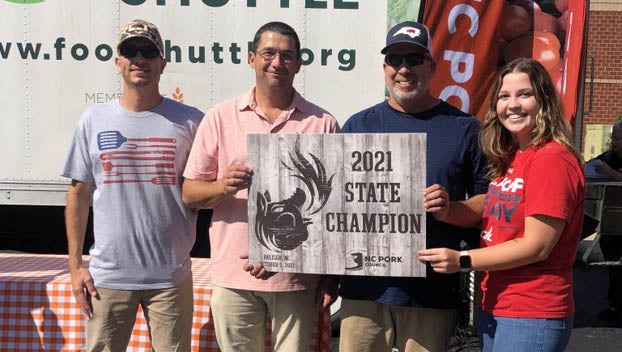Relationships over politics
Published 11:43 pm Tuesday, October 20, 2020
|
Getting your Trinity Audio player ready...
|
When was the last time you got into a political debate?
Perhaps it was with a family member, friend or other loved one; maybe it was with a stranger in the comments section of a news article on Facebook or a casual acquaintance on the street.
In any of these cases, there’s a good possibility that civility didn’t last too long.
We live at a time when politics are poisoning relationships, and our identities have become wrapped up in which candidates, parties and policies we support.
In some cases, we’ve lost our capacity to see one another outside of those political labels. Driven by tribalism, partisan rhetoric and fear, we remove ourselves from others and intentionally lock ourselves in echo chambers of opinions that reinforce our own biases.
When that happens, we end up buying distorted characterizations of our fellow Americans. The left, claims the right, are a collective of socialist boogeymen bent on destroying everything good and decent in America and radically redistributing your wealth to those too lazy to work. The right, claims the left, are a hive mind of racism, xenophobia and neo-fascism, ferociously protecting the interests of the wealthy and powerful at the expense of the poor and downtrodden.
Of course, neither of those are fair or accurate portrayals. When we begin to let this type of rhetoric paint how we view those around us, we’re being fooled and manipulated. We’re being intentionally turned on each other, not for our benefit, but for the benefit of those in power.
Is it important to participate in the political process? Of course. Should we each develop informed opinions on the policies that shape our county, state and nation? Absolutely. Nothing here should be construed as encouragement to not participate in the political process.
But as you do so, we challenge you — put relationships ahead of politics. You can civilly disagree with someone, support different candidates and have opposing views of what’s best for society without demonizing them and their beliefs.
When this election is over, these people will still be your neighbors. You’ll still have to work alongside them and see them in the grocery store. Is it really worth making an enemy over the battles going on in Raleigh or Washington, DC?






